The 7th Earl of Lucan, Richard John Bingham, better known as Lord Lucan, is one of the most infamous fugitives in British criminal history. Born in the 1930s, he was a charismatic man with expensive tastes: he raced power boats and, like James Bond, drove an Aston Martin. In 1963 he married Veronica Duncan, who bore him three children, and for a time his life seemed perfect. Then, at the start of the 1970s, Lucan’s marriage collapsed, he moved out of the family home and a bitter custody battle with his wife over the children ensued. This dispute seemed to change Lucan fundamentally – he spent most of the money he had on drink and gambling, became obsessed with regaining his children and began to spy on his family. Things came to a head in 1974 when the Lucans’ nanny was found brutally bludgeoned to death, apparently by Lord Lucan. Lady Lucan, who had also been present during the attack, indicated that her estranged husband was the murderer. Almost immediately, one of the largest manhunts ever organised in Britain began – one that to this day has still not resulted in an arrest. The last confirmed sighting of Lord Lucan was a few days after the body of the nanny was discovered, when he left a friend’s house in Uckfield, Sussex, never to be seen again. Since then, there have been almost as many alleged sightings of Lord Lucan as there have been of Elvis, Bigfoot or Jimmy Hoffa. Lucan’s true fate remains a fascinating mystery for the British public. Hundreds of reports of his presence in various countries around the world have been made following his initial disappearance, although none have been substantiated. Despite a police investigation and huge press interest, Lucan remains missing (presumed dead?).
In many ways Lord Lucan seemed like the perfect dashing English gentleman of the 1930s. Handsome and well-mannered, he was educated at Eton and from 1953 to 1955 served with the Coldstream Guards in West Germany. He was even once considered for the role of James Bond by Cubby Broccoli. Although there was nothing in his early life to suggest that he might be capable of cold-blooded murder, Lucan did, however, have a dark side, as evidenced by his gambling and lack of prudence with money. It was thought that his marriage to Veronica Duncan might settle him down but this proved to be a forlorn hope. Once the relationship broke down, Lucan’s destructive tendencies were given full rein in the bitter custody dispute that ensued. His increasingly strange behaviour – prank calls, spying and harassment – put off a succession of nannies employed by Veronica to look after the Lucan children. Sandra Rivett was the last of these, for on the evening of Thursday 7 November 1974 she was a helpless bystander when Lucan broke into the family home and attacked her and his wife. Rivett sadly did not survive this encounter but Lady Lucan gave police a harrowing account afterwards of the two women, almost helpless, trying to fend off the enraged Lord Lucan, who came at them with a lead pipe. Veronica managed to get away and promptly informed the police. Lord Lucan meanwhile drove his car, a Ford Corsair, 42 miles to Uckfield in Sussex to visit his friends, the Maxwell-Scotts. Susan Maxwell-Scott’s meeting with Lucan was the last confirmed sighting of him.
The Ford Corsair Lucan had been seen driving, and whose details had the previous day been circulated across the country, was found on Sunday in Norman Road, Newhaven, about 16 miles from Uckfield. Although suicide was suspected, a warrant for Lucan’s arrest was issued and descriptions of his appearance, already issued to police forces across the UK, were also issued to Interpol. The media reaction to the Lucan affair, which made headlines all over the world, was frenzied. Within days of the murder, newspapers reported on Veronica Lucan’s statement to the police, with claims that she had pretended to collude with her husband to ensure her safety. In his absence, the official inquest into Rivett’s death named Lord Lucan as her murderer (the last occasion in Britain when a coroner’s court was allowed to do this). Lucan’s friends and family were however critical of the inquest, which they felt offered a one-sided view of events. They pointed out that Lucan’s fingerprints were not found at the scene of the crime and also that there was no sign of forced entry. In contrast to his defenders, the national press were almost unanimous in their condemnation of Lucan.
But far more than the actual murder, the ultimate fate of Lord Lucan himself has been the subject of controversy and debate for decades. Apart from suicide, other common theories put forward include a rumoured drowning at sea and a move to southern Africa. Before she died Susan Maxwell-Scott suggested that Lucan might have been helped out of the country by shadowy underground financiers. The fact that Lucan’s disappearance has so captivated the public’s imagination for decades may in part explain the thousands of sightings of him reported across the world. One of the earliest, shortly after the murder, turned out to be a British ex-politician, John Stonehouse, who had attempted to fake his own death. The police travelled to France in June the following year hunting another lead, to no avail. Another sighting in Colombia turned out to be an innocent American businessman. John Miller, the bounty hunter who kidnapped the fugitive train robber Ronnie Biggs, claimed in 1982 to have captured the Earl, but was later exposed by The News of the World as a hoaxer. In 2003 a former Scotland Yard detective thought he had tracked the Earl to Goa, India, although the man he traced was actually ‘Jungle’ Barry Halpin, a folk singer from St Helens. By now, of course, the odds are that Lord Lucan is dead and, indeed, he was officially presumed dead on 11 December 1992. His son George then became the 8th Earl of Lucan, although – perhaps understandably – he prefers not to use the title. The various theories concerning the Lord Lucan affair, however, show little sign of dying out.

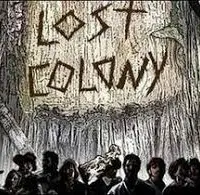

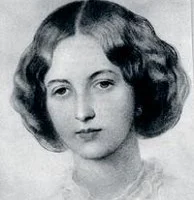
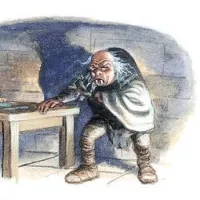

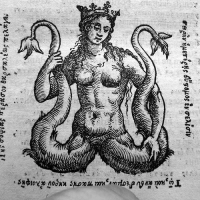




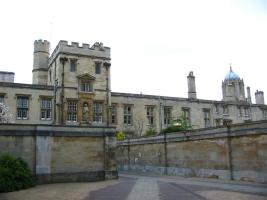


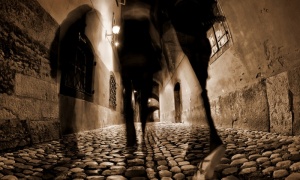


Another exceptional post,, Anibalan! This is a greatly valued blog. I always look forward to it. My Filipino friend, Rodel is intrigued by your name. Are you originally from Manila? . .
Lol, thanks, no 🙂
Really interesting read 🙂
Wondrous blog. Full of fascinating facts and suchlike.
Thought I’d give a little update on Lord Lucan:
Today (4th February 2016) Lady Lucan’s son Lord George
Bingham was finally granted a death
certificate for his father
and has inherited the title of 8th Earl.
Despite the fact that Lucan’s long absence, accompanied by a deafening silence was ever unlikely to alter, it’s taken some 42 years to provide his heirs with some definitive legal resolution. Although, I’m entirely unsure whose inertia is responsible. Family or judiciary?
Contrast this with the case of Richey Edwards, ex Manic Street Preachers guitarist, lyricist, stylist and philosopher. Most interesting and, devastatingly poignant: I invite independent research of the facts, which’ll be there at fingertips demand direct from the Google G-ds.